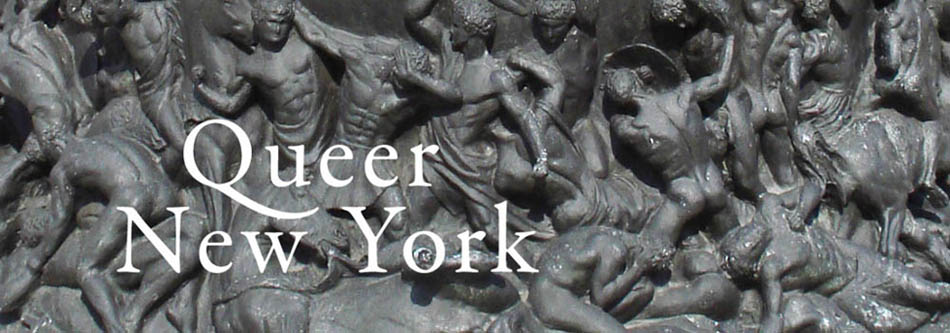Thursday, September 1, 2011
QNY Must-See Film: We Were Here
Last night I attended a screening of We Were Here, the new AIDS documentary by David Weissman. David is friend to many illustrious radical faeries I know, including Justin Vivian Bond, Covelo, Fannie Mae B. Free, Fussy Lo Mein, and Daisy Shaver, who were all in attendance. I also spotted NY Sen. Tom Duane, Mario Cantone, and tons of other celebrity-looking people whose names I should probably know. After co-directing the 2001 documentary The Cockettes with Bill Weber, it's not surprising that such a crowd would appear to view Mr. Weissman's new film, but this one especially because it's one of the first and deepest looks back at the AIDS crisis in San Francisco. I've never been so moved in a room filled with so many stars.
We Were Here takes a simple, spare approach. Mr. Weissman interviews five individuals who lived in San Francisco before AIDS struck and elicits their plague stories. A florist, a nurse, an activist, an artist, and a caregiver tell about those years and how their lives were changed. The interviews are set against a variety of still and moving archival images from the time.
The film is well served by by this minimalist approach. The audience develops an immediate affinity with each, and I'd venture a guess that most queer people will find a particular interviewee with whom they resonate. I was particularly drawn to Daniel, an artist who survived the very first drug trial, which study quickly killed every other participant (including his boyfriend), because he was a "wuss" who refused to tolerate the lethal side effects. Daniel's story of survival while caring for dying friends and lovers and founding a seminal, grassroots AIDS care organization is nothing short of stunning. I also found myself drawn to Eileen, a nurse at the first AIDS ward in San Francisco, and one of the first AIDS researchers, whose pragmatic approach to comfort and work to save lives is heroic.
But this isn't a movie about favorites. The director does an amazing job of integrating these stories and using them together to tell the broader story of the AIDS epidemic in the 80s and 90s. Of course I shed tears throughout much of the film. But I also shook with anger as I watched queers fight proposed laws that would have quarantined all AIDS patiets in California--not once but twice! I booed and shouted with ACT UP! members as they demanded adequate government response. The whole story is here, beautifully and terrifyingly brought to life with video footage and art from those times. And finally, the film brings these epic cultural events back to these five people who lived through them, and grounds us in the simple human feelings and failings that overwhelmed them. In so doing, the film becomes about more than AIDS; it is a hopeful prayer for all humanity, for all who suffer unimaginably and survive.
Please see this film. It premiers at the Angelika Film Center on September 9th. It is essential for every queer person and every loved one of every queer person. I cannot overstate the importance of keeping this recent history at the forefront of our social consciousness. I graduated high school in Kansas in 1994, and though I have heard hundreds of accounts from dear friends and partners who witnessed these times, never had I seen the whole arc so succinctly and intensely retold. Had I known, had I experienced this story in the visceral, total way that it is presented here, I might not now be living with HIV.
It means so much more than the success of a documentary. It could mean the health and happiness of a young queer person.
Subscribe to:
Post Comments (Atom)


I will see this. Thanks for the report, Riot.
ReplyDelete